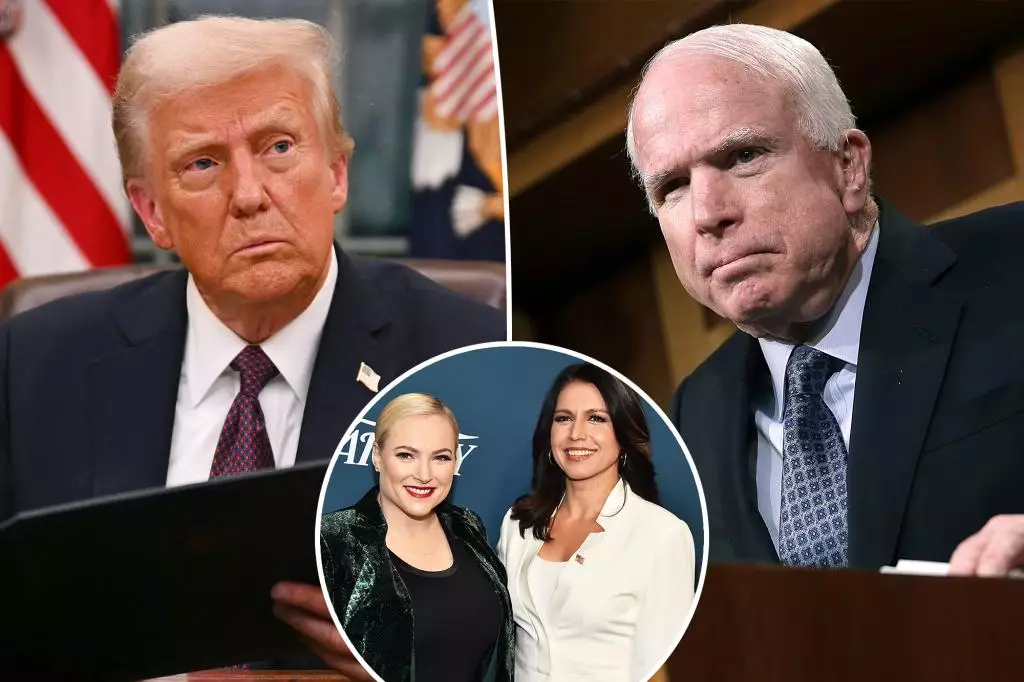The tumultuous relationship between former President Donald Trump and the late Senator John McCain is a chapter of American political history that epitomizes the deep divides within the Republican Party. It began in 2015 when Trump casually undermined McCain’s military service by stating, “I like people who weren’t captured.” This statement sparked outrage among many, particularly as McCain’s legacy was one of resilience and patriotism. The feud further intensified when McCain notably voted against Trump’s attempts to repeal the Affordable Care Act, a move that was met with both condemnation and praise, marking McCain as a maverick within the party.
Meghan McCain, Senator McCain’s daughter, emerged as a staunch defender of her father’s legacy during this bitter feud. Her vocal disapproval of Trump reached a crescendo when she lashed out against him in various public forums, labeling him an “election-denying huckster.” Her sentiments mirrored those of many who felt that Trump’s comments were not just disrespectful, but indicative of a larger pattern of behavior that belittled the sacrifices made by veterans. Cindy McCain, John’s widow, also expressed her distress over Trump’s continued attacks, stating in 2018 that the pain of these insults would linger.
However, the narrative took an unexpected turn recent months. As insiders report, impetus for reconciliation was provided by none other than Tulsi Gabbard, a former Democratic Congresswoman who came to be nominated for a significant role in Trump’s administration. This connection was facilitated largely by Meghan McCain herself, who has a friendship with Gabbard and advocated fervently for her confirmation as the Director of National Intelligence.
Meghan’s active involvement is a noteworthy development. By lobbying senators and vocalizing her support on significant media platforms, including an appearance on “Hannity,” she displayed a willingness to transcend her father’s complex legacy in pursuit of effective governance. The fact that she went so far as to pen an op-ed in favor of Gabbard showed a willingness to break from party dogma in favor of alliances that could unify rather than divide.
In a surprising twist, Meghan’s efforts did not go unnoticed by Trump’s administration. Reports indicate that she received thanks from the White House for her pivotal role in securing Gabbard’s nomination. During Gabbard’s swearing-in ceremony, both Meghan and her husband were invited—a gesture that may symbolize more than just political expediency; it may indicate a softening of the longstanding animosity that defined Trump and the McCains.
By the end of the week, reports surfaced suggesting that Meghan even received a personal note of thanks from Trump, delivered through an aide. This seemingly small gesture could herald a shift in the long-held animosity, as factions within the Republican Party are reconsidering their strategies in a rapidly evolving political landscape.
Ultimately, the evolution of this narrative from bitter resentment to a cooperative political engagement illustrates the potential for reconciliation in American politics. Such developments remind us that personal relationships can transcend ideological divides, illuminating pathways for future bipartisan efforts. Meghan McCain’s shift from a defender of a storied legacy into a pragmatic player in modern politics may serve as a compelling example for the generation of political leaders to come.

